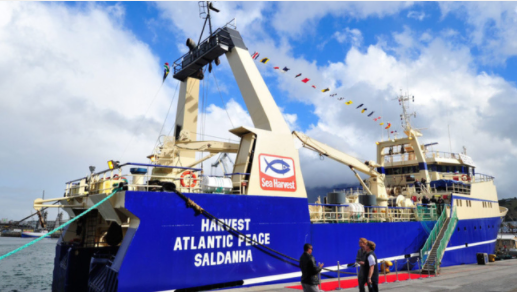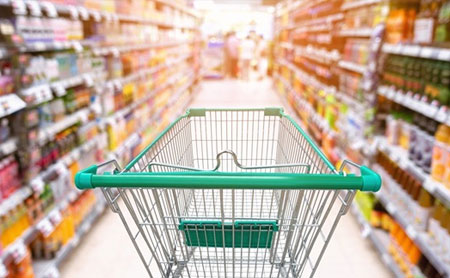Sea Harvest vessel, the Atlantic Peace, docked in Cape Town Harbour. Picture: Henk Kruger/Cape Argus.
JOHANNESBURG - Sea Harvest reported a 4 percent slump in profits for the six months to the end of June as Covid-19 supply chain constraints hit its operations.
The group said its profit after tax for the period decreased to R155 million, while headline earnings remained constant at R170m, from R169m during the comparative period last year.
It said earnings per share and headline earnings per share remained constant at 61 cents a share from 61.1c a share. Group revenue for the period increased 7 percent to R2 billion.
No interim dividend was declared.
As a result of supply chain disruptions, including lower throughput and lower levels of productivity, and after absorbing R11.2m of net direct Covid-19-related costs, the group delivered operating profit before net finance costs and taxation of R267m for the period, 5 percent lower than the prior period (R281m), with the operating profit margin contracting to 13 percent (15 percent), the group said.
Chief executive Felix Ratheb said although Sea Harvest continued operating as an essential service provider, the effect of the pandemic and the lockdowns in the markets in which the group operated meant that it did so below normal capacity levels.
Ratheb said the group experienced significant challenges, as did most companies, because of the pandemic.
“We needed to adapt to market conditions globally by changing our product and market mix relatively quickly with a focus on retail, as out-of-home consumption declined to virtually zero worldwide.
This clearly indicates the resilient and defensive nature of our business and the sectors in which we operate. Unfortunately, Covid-19 has had a devastating impact on our aquaculture business that supplies abalone to the food service industry in Asia, particularly Hong Kong, compounded by the grounding of almost all air travel during the various lockdowns,” said Ratheb.
Sea Harvest said the results were driven by stable performances from its South African fishing segment, the Cape Harvest food group segment, which included Ladismith Cheese, as well as its Australian operations.
The Australian operations were offset by continued challenges in the aquaculture segment that was severely impacted by the effects of Covid-19.
Sea Harvest said the cost of sales increased 6 percent on the back of cost containment and lower fuel prices, while gross profit for the period increased 9 percent to R666m, with the gross profit margin remaining constant at 33 percent.
The gross profit margin of the South African fishing segment expanded 2 percentage points to 38 percent.
Operating expenses for the period increased 5 percent to R387m.
Sea Harvest said it had invested significant resources in skills development, employment equity, supplier and enterprise development initiatives, as well as projects focused on job creation, the youth and rural development.
The group had spent in excess of R3.2m during the period on community-based projects, including Covid-19 relief.
Ratheb said Sea Harvest remained cautious for the remainder of 2020.
“We cannot grow complacent when entering lower levels of lockdown and we will continue to prioritise the health and safety of our people. What we are seeing in Australia and Spain are second waves and new lockdowns,” said Ratheb.
Article Source: https://bit.ly/2R45Tx6





